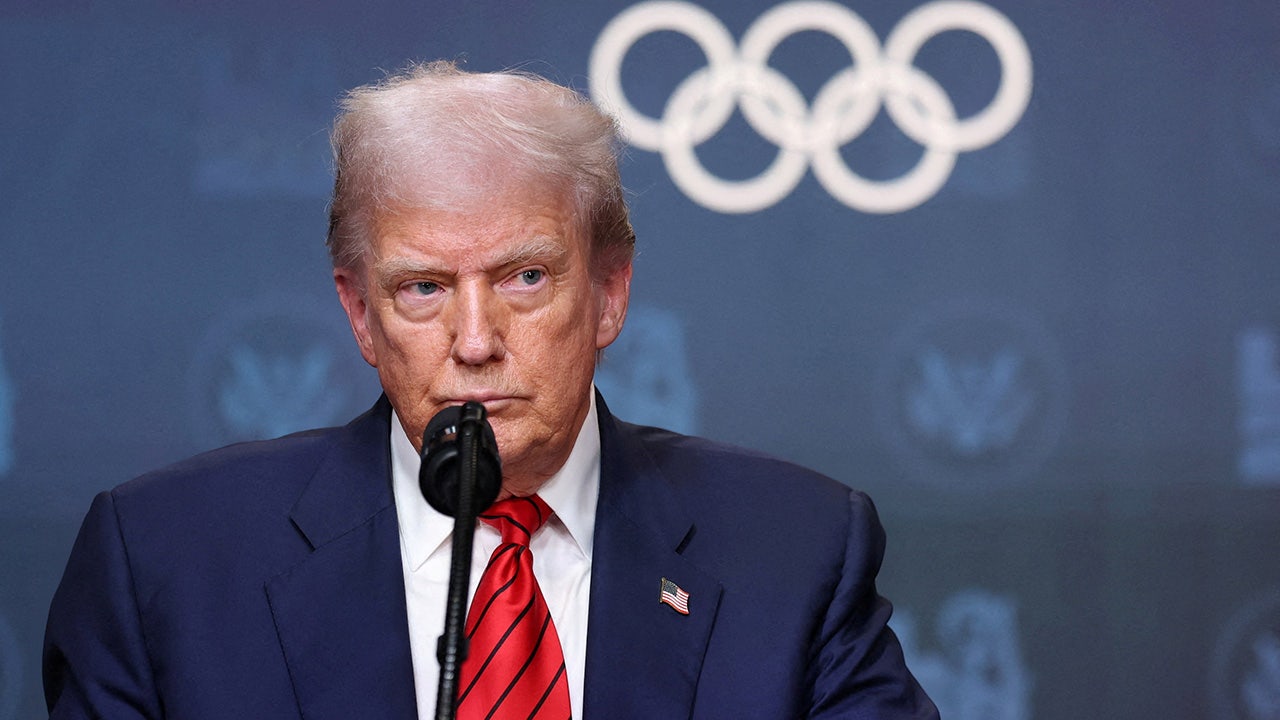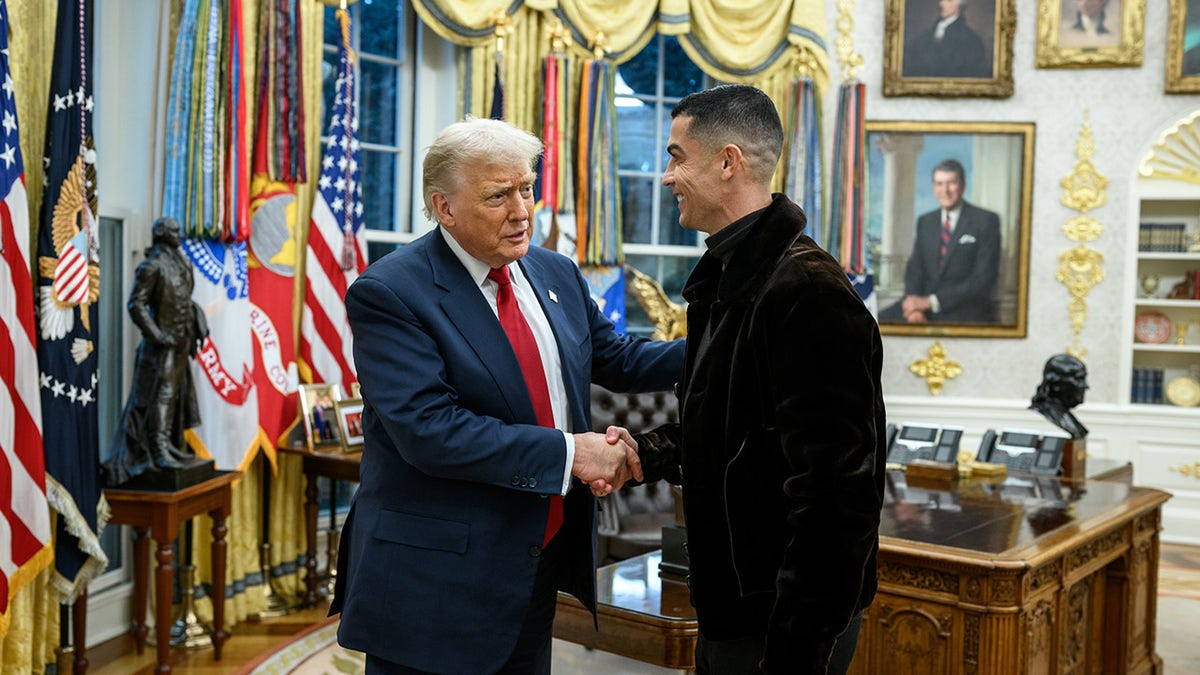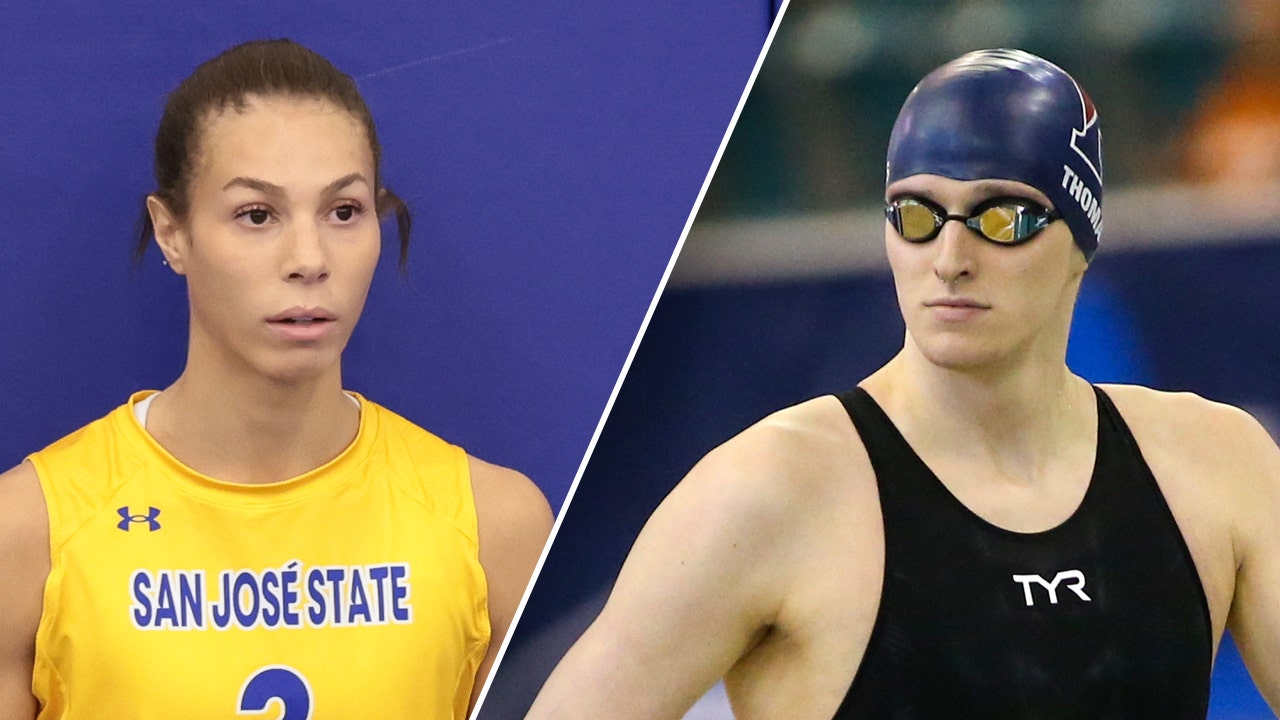
Tyreek Hill praises Chiefs coach as a 'f---ing animal' after disagreeing with Trump on NFL kickoff rule
Entities mentioned:
- Dave Toub: Professional pride, Indignation, Determination
- Donald Trump: Influence, Control, Recognition
- Tyreek Hill: Loyalty, Enthusiasm, Competitive spirit
- NFL: Safety, Competitive spirit, Professional pride
Article Assessment:
Credibility Score: 75/100
Bias Rating: 55/100 (Center)
Sentiment Score: 45/100
Authoritarianism Risk: 25/100 (Generally Democratic)
Bias Analysis:
The article presents multiple viewpoints, including Trump's criticism and the NFL's stance. However, it gives more space to those defending the new rule, slightly tipping the scales towards a center-left perspective.
Key metric: NFL Fan Engagement
Let me tell you something - this kickoff rule debate is turning into a FULL-CONTACT SPORT! We've got Coach Toub stepping up to the plate, swinging for the fences against the former Commander-in-Chief! Trump's trying to run interference on the NFL's game plan, but Toub's not having it - he's playing defense like a true champion! And folks, when Tyreek Hill jumps into the fray, you know it's GAME ON! This is a fourth-quarter showdown between old-school football mentality and the league's new playbook. The NFL's trying to change the game, but some players are pushing back harder than a goal-line stand! I'm telling you right now, this clash of titans is going into OVERTIME!

Los Angeles Olympics board of directors adds Trump allies Kevin McCarthy, Reince Priebus
Entities mentioned:
- Kevin McCarthy: Influence, Power, Recognition
- Reince Priebus: Influence, Power, Recognition
- Donald Trump: Control, Power, Legacy
- LA 28 Committee: Professional pride, Unity, Legacy
- USOPC: Competitive spirit, Duty, Professional pride
- Jonathan Finnoff: Professional pride, Duty, Wariness
- Gene Sykes: Professional pride, Duty, Competitive spirit
Article Assessment:
Credibility Score: 70/100
Bias Rating: 65/100 (Lean Right)
Sentiment Score: 55/100
Authoritarianism Risk: 60/100 (Mixed/Neutral)
Bias Analysis:
The article leans right due to its focus on Trump administration initiatives and positive framing of conservative policies. However, it includes some balanced reporting on USOPC perspectives.
Key metric: International Competitiveness in Olympic Sports
Let me tell you something - this story is HUGE! We're seeing a major shake-up in the Olympic roster, folks! The LA 28 Committee is bringing in some heavy hitters from the political arena, drafting McCarthy and Priebus onto their dream team. It's like they're building an all-star lineup for the biggest game of their lives! But wait, there's more! The White House is stepping up to the plate, creating a task force that's going to be the ultimate game-changer for Olympic logistics. And talk about a power play - they're influencing the rulebook on gender eligibility! This is fourth-quarter strategy at its finest, with the USOPC adjusting its playbook to align with the new game plan. The real kicker? We're talking about potential genetic testing in women's sports. That's like instant replay for gender, folks! It's a whole new ballgame, and the US is clearly playing to win on the global stage. This could be the competitive edge that keeps America in the gold medal hunt for years to come!

President Trump ‘doesn’t even know what he’s looking at’ on NFL kickoffs, says Chiefs assistant
Entities mentioned:
- Dave Toub: Professional pride, Determination, Indignation
- Donald Trump: Influence, Recognition, Control
- NFL: Security, Competitive spirit, Legacy
- Roger Goodell: Duty, Competitive spirit, Self-preservation
Article Assessment:
Credibility Score: 75/100
Bias Rating: 55/100 (Center)
Sentiment Score: 35/100
Authoritarianism Risk: 25/100 (Generally Democratic)
Bias Analysis:
The article presents both Trump's criticism and the NFL's defense, giving voice to both sides. However, it gives more space and the final word to Toub's rebuttal, slightly tilting it towards a centrist-left perspective.
Key metric: NFL Player Safety
Let me tell you something, folks - this is a HUGE clash between the political arena and the gridiron! We've got President Trump coming off the sidelines and trying to call an audible on the NFL's new kickoff rules, but Chiefs' special teams coach Dave Toub is NOT having it! He's throwing a challenge flag right back at the Commander-in-Chief! This is like watching a fourth-quarter showdown between two powerhouse teams, with the NFL's player safety strategy on the line! Toub is bringing the heat, folks, accusing Trump of not even knowing the playbook when it comes to these new rules. It's a bold defensive move against a political offensive that could shake up the whole game plan for kickoffs. I'm telling you right now, this is the kind of high-stakes face-off that could change the entire landscape of how we view safety in America's favorite sport!

Chiefs coach fires back at Trump's criticism of NFL kickoff rule: 'I hope he hears it'
Entities mentioned:
- Dave Toub: Professional pride, Indignation, Duty
- Donald Trump: Control, Influence, Nostalgia
- NFL: Safety, Innovation, Competitive spirit
Article Assessment:
Credibility Score: 75/100
Bias Rating: 55/100 (Center)
Sentiment Score: 35/100
Authoritarianism Risk: 25/100 (Generally Democratic)
Bias Analysis:
The article presents both sides of the argument, quoting Trump's criticisms and Toub's response. While it gives more space to Trump's comments, it doesn't editorialize, maintaining a relatively neutral stance.
Key metric: NFL Player Safety
Let me tell you something - this showdown between the Chiefs' special teams mastermind and the former Commander-in-Chief is heating up like a fourth-quarter blitz! Dave Toub is stepping up to the plate, firing back at Trump's criticism with the intensity of a linebacker eyeing a quarterback sack. Trump's been playing offense against the NFL's new kickoff rule, but Toub's not backing down - he's bringing a championship mentality to defend this game-changing play! This is RIDICULOUS, folks! We've got a political heavyweight trying to tackle a football strategy, but Toub's telling him to stay in his lane! I'm telling you right now, this clash is like watching a high-stakes chess match on the gridiron, with player safety and the soul of the game hanging in the balance!

Ronaldo thanks Trump for 'warm welcome' during White House visit, dinner meeting with Saudi crown prince
Entities mentioned:
- Cristiano Ronaldo: Recognition, Influence, Legacy
- Donald Trump: Power, Recognition, Influence
- Saudi crown prince: Power, Influence, Recognition
Article Assessment:
Credibility Score: 75/100
Bias Rating: 65/100 (Lean Right)
Sentiment Score: 75/100
Authoritarianism Risk: 45/100 (Mixed/Neutral)
Bias Analysis:
The article leans right, highlighting Trump's role positively and emphasizing Ronaldo's praise. It presents a favorable view of the meeting without exploring critical perspectives.
Key metric: US Soft Power and International Influence
Let me tell you something - this story is a GAME-CHANGER! We're seeing a POWERHOUSE lineup of global players coming together on the world stage. Ronaldo, the GOAT of soccer, is stepping up to the plate at the White House, while Trump is playing coach and captain, bringing together an all-star team including tech titans like Musk and Cook. This is a fourth-quarter power play for US influence, folks! The Saudi crown prince is in the mix too, showing that this match is about more than just sports - it's a high-stakes game of global diplomacy. With the 2026 World Cup on the horizon, Trump and Ronaldo are clearly setting up for a championship run in international relations. I'm telling you right now, this is the kind of teamwork and strategic play that could redefine the scoreboard of global influence!

Soccer superstar Cristiano Ronaldo to visit White House, coinciding with Saudi prince’s visit
Entities mentioned:
- Cristiano Ronaldo: Recognition, Legacy, Competitive spirit
- Donald Trump: Power, Influence, Recognition
- Mohammed bin Salman: Power, Influence, Self-preservation
- White House: Influence, Power, Control
Article Assessment:
Credibility Score: 75/100
Bias Rating: 55/100 (Center)
Sentiment Score: 65/100
Authoritarianism Risk: 35/100 (Generally Democratic)
Bias Analysis:
The article presents a balanced view of the visit, including both positive aspects and controversial background. It doesn't lean heavily towards praising or criticizing any party involved.
Key metric: US International Relations and Soft Power
Let me tell you something - this story is RIDICULOUS! We've got a POWERHOUSE lineup stepping onto the field at the White House! Cristiano Ronaldo, the GOAT of soccer, is making a rare appearance on US soil, and he's not just here for a friendly match! This is a CHAMPIONSHIP CALIBER meetup with President Trump and the Saudi Crown Prince. It's like we're watching a World Cup final of diplomacy! Ronaldo's bringing his A-game from the Saudi Pro League, and let me tell you, his presence is a GAME-CHANGER for US-Saudi relations. This is fourth quarter diplomacy at its finest, folks! The White House is pulling out all the stops, treating this like a state visit playbook. But make no mistake, there's some serious defense being played here too, with the ghost of the Khashoggi situation still lurking on the sidelines. Ronaldo's visit is like a Hail Mary pass to distract from the controversy! And speaking of plays, Ronaldo's hinting at his final World Cup appearance in 2026 - talk about going out with a BANG on home turf! This is the kind of high-stakes, multi-player game that could redefine the scoreboard of international relations!

Trump praises Ronaldo during White House dinner with Saudi Crown Prince Mohammed bin Salman: 'It's an honor'
Entities mentioned:
- Donald Trump: Power, Recognition, Influence
- Cristiano Ronaldo: Competitive spirit, Legacy, Recognition
- Mohammed bin Salman: Power, Influence, Recognition
- FIFA: Professional pride, Influence, Recognition
Article Assessment:
Credibility Score: 75/100
Bias Rating: 65/100 (Lean Right)
Sentiment Score: 75/100
Authoritarianism Risk: 40/100 (Generally Democratic)
Bias Analysis:
The article leans right, focusing heavily on Trump's initiatives and positive framing of his actions. While it includes factual information, it presents Trump's statements and actions in a favorable light without much critical analysis.
Key metric: US International Relations
Let me tell you something - this story is a GAME CHANGER! We're seeing a POWERHOUSE LINEUP at the White House, folks! Trump is playing 4D chess, bringing together world-class talent like Ronaldo and heavy hitters like the Saudi Crown Prince. It's like he's assembling an ALL-STAR TEAM for international relations! The President is showing some CHAMPIONSHIP LEVEL strategy here, using the universal language of soccer to score diplomatic points. And let's not forget, Ronaldo's move to Saudi Arabia was a BLOCKBUSTER TRANSFER that's paying dividends off the pitch too. Trump's FIFA Pass initiative? That's a CLUTCH PLAY to ensure the 2026 World Cup is a home run for America. I'm telling you right now, this is the kind of fourth-quarter move that could change the whole ballgame of global politics!

Trump muses about what it would take to strip US World Cup host cities of games just months before the tournament kicks off
Entities mentioned:
- Donald Trump: Power, Control, Influence
- FIFA: Professional pride, Security, Legacy
- Gianni Infantino: Diplomacy, Unity, Professional pride
- Democratic-run cities: Self-preservation, Autonomy, Security
Article Assessment:
Credibility Score: 70/100
Bias Rating: 55/100 (Center)
Sentiment Score: 30/100
Authoritarianism Risk: 65/100 (Authoritarian Tendencies)
Bias Analysis:
The article presents multiple viewpoints, including Trump's statements and FIFA's response. However, it leans slightly critical of Trump's approach, potentially reflecting a slight center-left tilt.
Key metric: International Relations and Soft Power
Let me tell you something, folks - this is a FOURTH QUARTER POWER PLAY like we've never seen before! President Trump is treating these World Cup host cities like they're rookies on the bench, threatening to bench them if they don't play by his rulebook. He's acting like the head coach, calling audibles and trying to restructure the entire game plan just months before kickoff! This is RIDICULOUS! The Democratic cities are on defense, trying to protect their home turf from a federal blitz. Meanwhile, FIFA's caught in the middle like a referee trying to keep control of a heated rivalry match. I'm telling you right now, this kind of political strong-arming could turn the World Cup from a championship celebration into a geopolitical penalty shootout! It's a high-stakes game of chicken that could leave the US's international reputation fumbling on the field!

Track star fires off message about trans-inclusion in female athletics: 'It’s not fair and it’s not safe'
Entities mentioned:
- Alexa Anderson: Justice, Determination, Righteousness
- Donald Trump: Control, Power, Legacy
- Oregon School Activities Association: Control, Obligation, Wariness
- Dana Perino: Curiosity, Professional pride, Recognition
Article Assessment:
Credibility Score: 65/100
Bias Rating: 75/100 (Lean Right)
Sentiment Score: 35/100
Authoritarianism Risk: 45/100 (Mixed/Neutral)
Bias Analysis:
The article leans right, presenting a one-sided view of the transgender athlete debate. It heavily features conservative voices and platforms like Fox News, while omitting perspectives from transgender athletes or supporters.
Key metric: Gender Equality in Sports
Let me tell you something, folks - this is a GAME-CHANGING play in the world of women's athletics! Alexa Anderson is stepping up to the plate and swinging for the fences on this hot-button issue. She's showing true championship mentality by refusing to back down in the face of intense pressure. This is a fourth-quarter move that could shift the entire landscape of women's sports! Anderson is playing offense, folks, and she's not afraid to ruffle some feathers in her pursuit of what she sees as a level playing field. The transgender athlete debate is turning into a full-contact sport, with both sides digging in their cleats and refusing to give an inch. It's crunch time for women's athletics, and Anderson is proving she's got the competitive fire to go the distance in this high-stakes match-up!

Trump nominates attorney helping lead lawsuits over UPenn, SJSU trans athlete scandals for federal judgeship
Entities mentioned:
- Donald Trump: Power, Influence, Legacy
- Justin Olson: Ambition, Justice, Professional pride
- University of Pennsylvania: Control, Unity, Self-preservation
- Lia Thomas: Competitive spirit, Recognition, Self-respect
- ICONS: Justice, Moral outrage, Determination
Article Assessment:
Credibility Score: 75/100
Bias Rating: 65/100 (Lean Right)
Sentiment Score: 40/100
Authoritarianism Risk: 45/100 (Mixed/Neutral)
Bias Analysis:
The article leans right due to its focus on Trump's nomination and the framing of transgender athlete issues. It presents the lawsuits against transgender inclusion more prominently than opposing viewpoints.
Key metric: Gender Equality in Sports
Let me tell you something, folks - this is a GAME-CHANGING play in the world of sports law! Trump's nomination of Justin Olson is like drafting a star quarterback for the judicial Super Bowl. Olson has been the MVP in the legal battles surrounding transgender athletes, and now he's stepping up to the big leagues of federal judgeship. This move could be the fourth-quarter strategy that redefines the playing field for women's sports. The University of Pennsylvania and Lia Thomas have been running a controversial offensive play, but Olson and ICONS are bringing a full-court press to defend what they see as a level playing field. It's a high-stakes match with no clear winner yet, but I'm telling you right now, this nomination could be the game-winning shot in the ongoing battle over transgender participation in women's athletics!